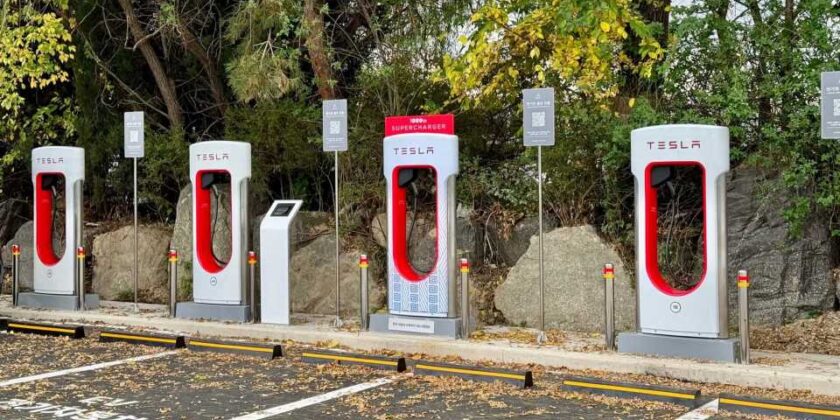Tesla has just expanded its Non-Tesla Supercharger Pilot program to another country, making available select Superchargers in South Korea to other electric vehicles.
The company did not reveal details, but its map of Superchargers indicates that roughly 80 sites (or about half of the local network) were opened.
The South Korean network has a thousand Supercharging stalls. The jubilee 1,000th dispenser was installed in Incheon-Yeonsu on November 17, according to Tesla Charging profile on X (@TeslaCharging).
The South Korean market is an interesting one, because just like in the United States and Canada, Tesla uses its in-house charging connector (named NACS) there, while the local EV industry is using the CCS1 for DC fast charging (and J1772 for AC charging).
To open the Supercharging network to other EVs, Tesla had to retrofit the charging dispensers with built-in CCS1 adapters (aka Magic Dock).
The main question now is whether the EV industry in South Korea will stick with CCS1 or maybe follow the U.S. and Canada and switch to the NACS. It’s mostly the decision of the Hyundai Motor Group.
The Japanese move will also be very interesting because of its engagement with CHAdeMO, but that’s a different story.
The non-Tesla pilot currently includes more than 20 countries:
- North America:
- United States
[Magic Dock built-in CCS1 adapter]
See also the first V4 charging dispensers in the U.S. - Canada
[Magic Dock built-in CCS1 adapter]
- United States
- Europe and surrounding markets:
- Europe (15 countries) – Austria, Belgium, Denmark, Finland, France, Germany, Iceland, Italy, Luxembourg, The Netherlands, Norway, Spain, Sweden, Switzerland, United Kingdom
[Native compatibility with the CCS2 standard]
Additionally, to handle various EVs, new V4 stations are equipped with a longer cable - Turkey
[Native compatibility with the CCS2 standard] - Asia Pacific:
- Australia
[Native compatibility with the CCS2 standard] - New Zealand
[Native compatibility with the CCS2 standard] - Mainland China
[Native compatibility with the local GB/T standards] - South Korea
[Magic Dock built-in CCS1 adapter]
Besides the opening of its fast charging network to other manufacturers, Tesla is also becoming a major EV charging infrastructure provider for other charging networks. The first supply agreements were recently announced by BP (BP Pulse charging network in the U.S.) and EG Group in Europe.
Source: Read Full Article
- Australia
- Europe (15 countries) – Austria, Belgium, Denmark, Finland, France, Germany, Iceland, Italy, Luxembourg, The Netherlands, Norway, Spain, Sweden, Switzerland, United Kingdom
